.jpg)
Rough Cut (Yeonghwaneun yeonghwada). 2008. Directed by Jang Hun. Written by Kim Ki-duk. Produced by Kim Ki-duk and David Cho. Cinematography by Kim Gi-tae. Edited by Wong Su-ahn. Music by Roh Hyoung-woo. Production design by Lee Hyun-chu. Sound by Jung Kwang-ho. Costume design by Ma Youn-hee. Fight choreography by Jeon Moon-shik and Oh Ho-jin.
Cast: So Ji-sub (Lee Gang-pae), Kang Ji-hwan (Jang Soo-ta), Hong Soo-hyeon (Kang Mi-na), Ko Chang-seok (Director Bong), Jang Hee-jin (Eun-seon), Song Yong-tae (President Baek), Han Gi-joong (President Park), Han Seung-do (Button Man 1), Jo Seok-hyeon (Button Man 2), Park Soo-young (Chief Lee).
(Note: this review has been cross-posted on Twitch.)
Jang Hun’s debut feature Rough Cut, a smart, immensely entertaining action film produced and scripted by cinematic enfant terrible Kim Ki-duk, takes the shopworn concept of an actor playing a gangster who meets a real gangster, and invests it with a surprising amount of humor, heart and melancholy. Soo-ta (Kang Ji-wan), a spoiled brat of an actor, as well as an imperious jackass who thinks he’s God’s gift to the world, gets himself in a major jam during the shoot of his latest film when he ends up actually assaulting the actors he’s playing fight scenes with, to the point that no other actor will play opposite him. Enter Gang-pae (So Ji-sub), an actual gangster (as opposed to Soo-ta’s cinematic faux one), a fan of Soo-ta’s who’s initially brushed off by him when they meet in a room salon, where Gang-pae asks for an autograph (after the shy gangster first sends two of his henchmen to ask for him). Later, when Soo-ta is desperate for an acting partner, he seizes upon Gang-pae’s earlier confession that he once aspired to be an actor to implore Gang-pae to fill in for the latest co-star he put in the hospital. Gang-pae agrees, but with one major condition: their fight scenes have to be for real. “I can’t fake things,” Gang-pae says. Bong (Ko Chang-seok), the film’s director (who sort of looks like a much heavier version of Hong Sang-soo), is at first skeptical, but he soon warms to the idea of this “real” aspect of the film that will distinguish his from the rest. Thereafter begins a sort of action-film version of Persona, where these two supposedly polar opposites find they have much more in common than they think. Gang-pae lives alone, taking anti-depression pills and watching films in the anonymous hotel rooms he takes up residence in. He regularly takes breaks from his gangster duties to catch a matinee at the local movie theater. Gang-pae’s favorite film, in a neat bit of homage, is Lee Chang-dong’s Green Fish, another unconventional gangster film, and a major film of Korean cinema’s late 90’s renaissance. Gang-pae seems very much alienated from his profession, seemingly going through the motions of gangster behavior without really feeling it. It’s as if he’s already an actor in his own life, albeit without a camera, at least initially. Soo-ta is also isolated, since his violent nature drives all other actors away from him, and he treats his agent, his only advocate, like a common servant. He carries on a relationship in secret, which seems only to consist of furtive sex sessions inside his van, with Eun-seon (Jang Hee-jin), whom he is loath to be seen with in public. “If your face gets out, you’ll never be able to get married,” Soo-ta feebly offers as an explanation, when it’s obvious that the secrecy is for his benefit alone.
Surprisingly for a film written by Kim Ki-duk, this film has a light touch, rendered with a swift, sure hand and maximum efficiency by Jang, a former assistant of Kim. Real life and cinema blend into one another (Soo-ta speaks in lines from his script when he first meets Gang-pae), belying the film’s ironic Korean title, “A Movie is a Movie.” The bloody pugilism prevalent in the film is leavened slightly by the presence of Mi-na (Hong Soo-hyeon), the film’s leading lady, who becomes drawn to the mysterious Gang-pae. As befits the film’s male-oriented milieu, the character of Mi-na is the weakest aspect of the film’s script. Nevertheless, Hong is quite good in this role, investing her role with an appeal that somewhat deepens her sketchily drawn character. Rough Cut, as much as anything else, is a major showcase for So Ji-sub, a popular television actor appearing in his second film six years after his debut (2002’s Can’t Live Without Robbery), who is terrific, his slow, rolling gait and heavy-lidded, brooding eyes suggesting a Korean version of Robert Mitchum. Although So is the star of this show, Kang Ji-hwan (Host and Guest), another popular television actor, proves a worthy foil, sensitively registering his character’s transformation from pampered celebrity to someone whose privileged bubble is violently burst, especially in the film’s final scene. Rough Cut’s intelligent, quicksilver script is continually surprising, and injects some intriguing ambiguity into the scenario. For example, it is unsettlingly left an open question whether, in a scene in which Gang-pae’s character rapes Mi-na’s character in the film-within-the-film, Gang-pae remains true to his stated credo to not “fake things.” To further the film’s theme of the blurry line between cinema and reality, Jang reportedly included in the film fight scenes where So Ji-sub and Kang Ji-wan accidentally hurt one another on set. This most likely occurred during the shooting of the mud-drenched showdown between their characters, in which (as Jang has related in interviews) all the careful fight choreography planned for them went out the window, as both actors slipped around in the muck.
Even though this film superficially shares little with Kim Ki-duk’s films as a director (for example such divisive films as Bad Guy and The Isle), dig a little deeper and you’ll find some affinities. Kim’s protagonists are usually violent men who feel marginalized from the environments in which they find themselves, and that characterization certainly bears itself out here. However, there is also a fair amount of humor in the film, with Kim’s script gleefully poking fun at the film industry, with its satirical portrait of actors puffed up with an inflated sense of their own importance and abilities, and the routine unoriginality of most commercial film plots. By all evidence, the film-within-a-film of Rough Cut seems to be the most unoriginal gangster film ever made, which would explain director Bong’s eagerness to seize on any aspect distinguishing his film from all the rest. The idea of a funny film written by Kim Ki-duk would at first blush seem like an oxymoron, until you consider that the scenarios of many of Kim’s own films skirt the very edge of risibility, and would be ridiculously absurd and yes, hilarious, if they weren’t rendered with the utter conviction that Kim brings to the material (for exhibit A, see Kim’s freaky plastic-surgery drama Time). Kim’s playful wit extends to the very names of the actor and gangster, which are the English word “star” (Soo-ta) and the Korean word for “gangster” (Gang-pae). Rough Cut was very popular in Korea upon its release last summer (no doubt owing more to its stars than to producer-writer Kim, whose own films usually fare poorly at the box-office), attracting more than a million viewers in its first week of release. So and Kang also shared the Best New Actor Prize at last year’s Blue Dragon Film Awards.
.jpg) Rough Cut, a major highlight of this year’s New York Asian Film Festival, screens June 23 at 9:30 and June 24 at 6:30 at the IFC Center. Lead actor So Ji-sub will appear in person at both screenings. Click here to purchase tickets.
Rough Cut, a major highlight of this year’s New York Asian Film Festival, screens June 23 at 9:30 and June 24 at 6:30 at the IFC Center. Lead actor So Ji-sub will appear in person at both screenings. Click here to purchase tickets.
Surprisingly for a film written by Kim Ki-duk, this film has a light touch, rendered with a swift, sure hand and maximum efficiency by Jang, a former assistant of Kim. Real life and cinema blend into one another (Soo-ta speaks in lines from his script when he first meets Gang-pae), belying the film’s ironic Korean title, “A Movie is a Movie.” The bloody pugilism prevalent in the film is leavened slightly by the presence of Mi-na (Hong Soo-hyeon), the film’s leading lady, who becomes drawn to the mysterious Gang-pae. As befits the film’s male-oriented milieu, the character of Mi-na is the weakest aspect of the film’s script. Nevertheless, Hong is quite good in this role, investing her role with an appeal that somewhat deepens her sketchily drawn character. Rough Cut, as much as anything else, is a major showcase for So Ji-sub, a popular television actor appearing in his second film six years after his debut (2002’s Can’t Live Without Robbery), who is terrific, his slow, rolling gait and heavy-lidded, brooding eyes suggesting a Korean version of Robert Mitchum. Although So is the star of this show, Kang Ji-hwan (Host and Guest), another popular television actor, proves a worthy foil, sensitively registering his character’s transformation from pampered celebrity to someone whose privileged bubble is violently burst, especially in the film’s final scene. Rough Cut’s intelligent, quicksilver script is continually surprising, and injects some intriguing ambiguity into the scenario. For example, it is unsettlingly left an open question whether, in a scene in which Gang-pae’s character rapes Mi-na’s character in the film-within-the-film, Gang-pae remains true to his stated credo to not “fake things.” To further the film’s theme of the blurry line between cinema and reality, Jang reportedly included in the film fight scenes where So Ji-sub and Kang Ji-wan accidentally hurt one another on set. This most likely occurred during the shooting of the mud-drenched showdown between their characters, in which (as Jang has related in interviews) all the careful fight choreography planned for them went out the window, as both actors slipped around in the muck.
Even though this film superficially shares little with Kim Ki-duk’s films as a director (for example such divisive films as Bad Guy and The Isle), dig a little deeper and you’ll find some affinities. Kim’s protagonists are usually violent men who feel marginalized from the environments in which they find themselves, and that characterization certainly bears itself out here. However, there is also a fair amount of humor in the film, with Kim’s script gleefully poking fun at the film industry, with its satirical portrait of actors puffed up with an inflated sense of their own importance and abilities, and the routine unoriginality of most commercial film plots. By all evidence, the film-within-a-film of Rough Cut seems to be the most unoriginal gangster film ever made, which would explain director Bong’s eagerness to seize on any aspect distinguishing his film from all the rest. The idea of a funny film written by Kim Ki-duk would at first blush seem like an oxymoron, until you consider that the scenarios of many of Kim’s own films skirt the very edge of risibility, and would be ridiculously absurd and yes, hilarious, if they weren’t rendered with the utter conviction that Kim brings to the material (for exhibit A, see Kim’s freaky plastic-surgery drama Time). Kim’s playful wit extends to the very names of the actor and gangster, which are the English word “star” (Soo-ta) and the Korean word for “gangster” (Gang-pae). Rough Cut was very popular in Korea upon its release last summer (no doubt owing more to its stars than to producer-writer Kim, whose own films usually fare poorly at the box-office), attracting more than a million viewers in its first week of release. So and Kang also shared the Best New Actor Prize at last year’s Blue Dragon Film Awards.
.jpg) Rough Cut, a major highlight of this year’s New York Asian Film Festival, screens June 23 at 9:30 and June 24 at 6:30 at the IFC Center. Lead actor So Ji-sub will appear in person at both screenings. Click here to purchase tickets.
Rough Cut, a major highlight of this year’s New York Asian Film Festival, screens June 23 at 9:30 and June 24 at 6:30 at the IFC Center. Lead actor So Ji-sub will appear in person at both screenings. Click here to purchase tickets.


.jpg)
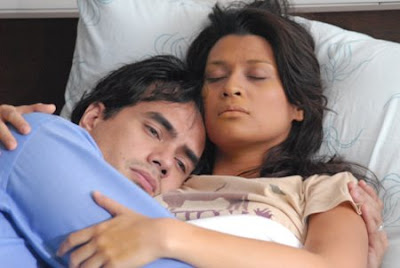.jpg)
.jpg)
.jpg)
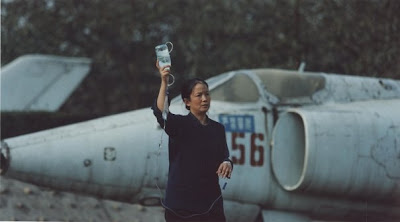.jpg)
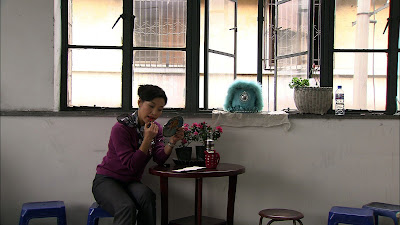.jpg)
.jpg)
.jpg)
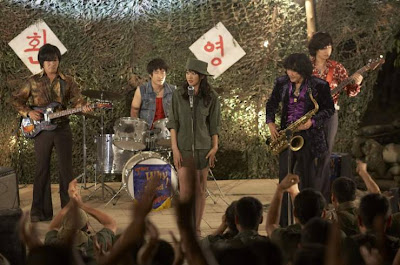.jpg)

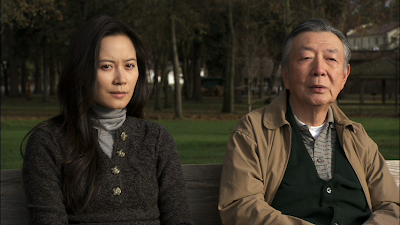.png)
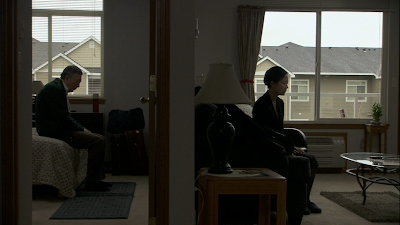.png)






